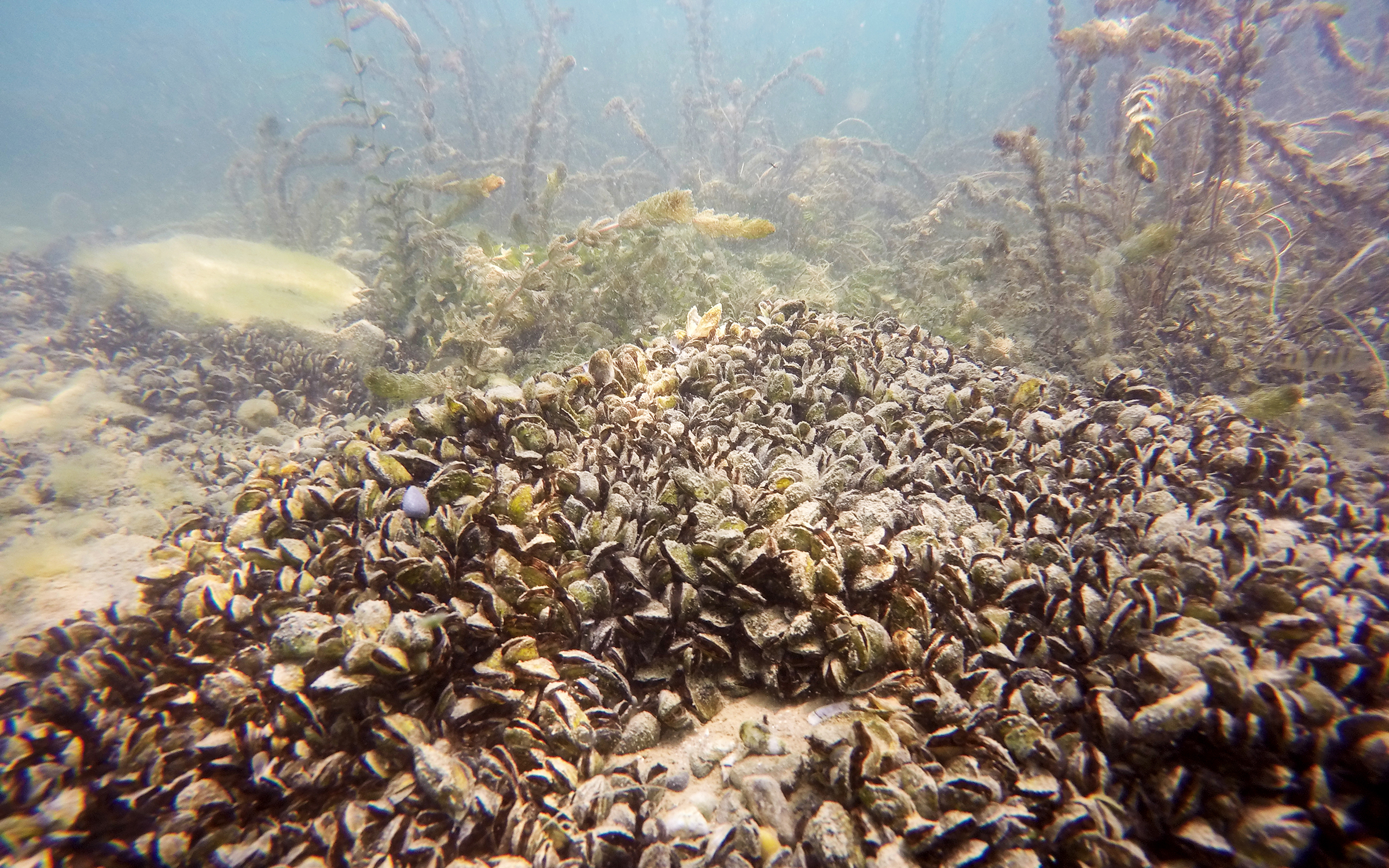
Swiss experts demand urgent action against quagga mussel invasion

Swiss experts say swift action is required to combat the spread of invasive quagga mussels in the Alpine nation.
+Get the most important news from Switzerland in your inbox
Measures should be implemented as quickly and comprehensively as possible, the Swiss Federal Institute of Aquatic Science and Technology (Eawag) said on Tuesday.
The measures must also be coordinated within Switzerland and with neighbouring countries, Eawag said in a statement.

More
Can the spread of invasive quagga mussels be stopped in Switzerland?
The recommendations are based on a new report compiled by Eawag experts on behalf of the Federal Office for the Environment and the Federal Expert Committee for Biosafety.
The quagga mussel, which originates from the Black Sea, has been spreading rapidly in Swiss waters for around ten years.

More
Study: quagga mussels to spread massively in Switzerland
According to Eawag, the mussels are fundamentally changing ecosystems, which among other things means that fish are finding less food.
They are also clogging up water pipes, making expensive maintenance work necessary. Over the next 30 years, experts expect the number of mussels in Switzerland to increase by a factor of up to twenty.
What is your opinion? Join the debate:
Translated from French by DeepL/sb
How we work
We select the most relevant news for an international audience and use automatic translation tools such as DeepL to translate them into English. A journalist then briefly reviews the translation for clarity and accuracy before publication. Providing you with automatically translated news gives us the time to write more in-depth articles. The news stories we select have been written and carefully fact-checked by an external editorial team.
Did you find this explanation helpful? Please fill out the short survey on this page to help us understand your needs.

In compliance with the JTI standards
More: SWI swissinfo.ch certified by the Journalism Trust Initiative































You can find an overview of ongoing debates with our journalists here . Please join us!
If you want to start a conversation about a topic raised in this article or want to report factual errors, email us at english@swissinfo.ch.